13 artists on how they use Ableton Live: “Use it as a real instrument... it has infinite possibilities”
In celebration of Ableton's 20th birthday, we spoke with a collection of artists to find out how the DAW figures in their creative process
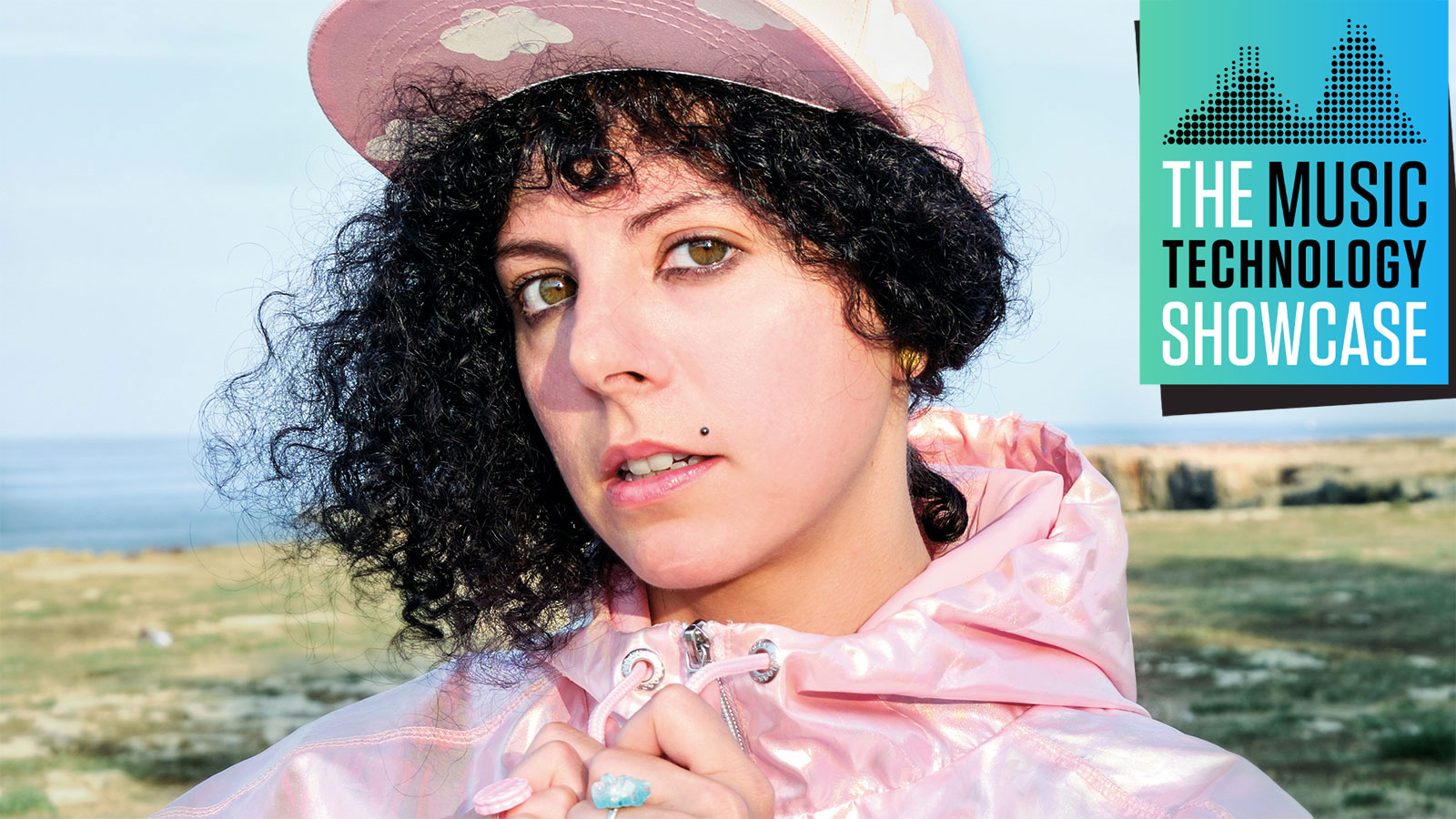
Want all the hottest music and gear news, reviews, deals, features and more, direct to your inbox? Sign up here.
You are now subscribed
Your newsletter sign-up was successful
Music Tech Showcase 2021: It's Ableton Live's 20th anniversary this month, marking two decades for the tremendously influential DAW that's become the software of choice for generations of producers and musicians.
In recognition of their 20th birthday, we've spoken to 13 artists that use Ableton Live as their primary DAW - whether that's for generating ideas, fine-tuning mixes or performing live - hearing about how the software figures in their creative process.
Joachim Pastor
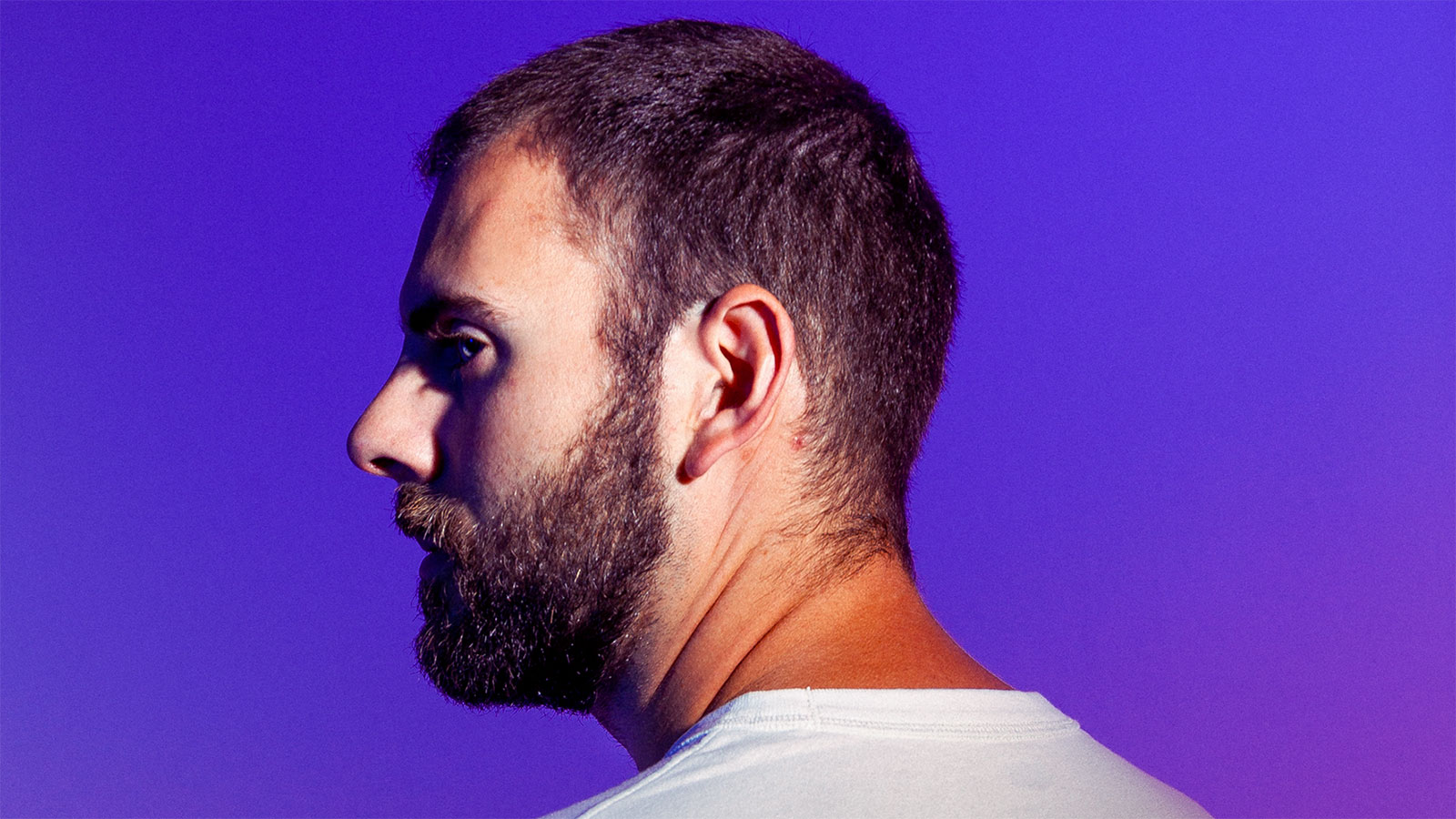
When did you first discover Ableton Live, and why did you start using it?
“The first time I saw Ableton, it was my friend Sebastien Léger that showed it to me. I was working on Logic at the time, it was about 15 years ago. I thought it looked really fast for creativity, especially working with MIDI content back in the day. I also liked the live possibilities.”
How does Ableton Live fit into your creative process?
“Well I do almost everything with it, composing, producing and mixing. I like it as a tool, it's really quick and no-nonsense, it is also quite stable.”
What makes you choose Ableton Live over other DAWs?
Want all the hottest music and gear news, reviews, deals, features and more, direct to your inbox? Sign up here.
“I'd say the live side of Ableton, it's really great for me when I'm touring, to be able to create and transfer projects and setups from the producing side to the live performance side. I cannot imagine playing live with another software.”
What’s your favourite tool or feature in Ableton Live?
“I’m a simple man: EQ8 because with one plugin I can control an EQ (M/S or L/R), a filter and use it as gain. I also like utility, with the mono option it's really useful.”
What’s your top Ableton Live production tip?
“Always listen to an instrument or sound in context, never solo. Also, when you A/B a plugin, like a compressor for example, just close your eyes. It really works.”
Joachim Pastor's Greater Message is out now.
Prequel Tapes
When did you first discover Ableton Live, and why did you start using it?
“I think that was somewhere in 2003 - back then it had been hyped for a year or so.
In those days I shared a studio complex with other producers and musicians and made the decision then to buy and install Live 2.0 on my Power Mac. I even worked with Ableton at Sonar 2006 to demonstrate in a workshop how I use it in context with analog gear in the live show of the techno project I was working on back then.”
Today, after 18 years, I am so used to it that I don't really even have to think a lot about my actions
How does Ableton Live fit into your creative process?
“I just can combine everything I want, and also use it to record all my gear. Still loving the ‘live’ attitude and that I can sketch on the fly an arrangement that I can edit afterwards.”
What makes you choose Ableton Live over other DAWs?
“In the beginning it was the playfulness of it, and that it followed a completely different path than the other common DAWs. Today, after 18 years, I am so used to it that I don't really even have to think a lot about my actions. The DAW is just in me now. I became the DAW through Live!”
What’s your favourite tool or feature in Ableton Live?
“Editing audio and MIDI in the clip view and recording on-the-fly sessions.”
What’s your top Ableton Live production tip?
“Always bounce everything to audio. Never leave plugins plus effects running, like this Ableton Live sounds a thousand times better.”
Prequel Tapes & dBridge's Ionize EP is out now.
Kayla Painter
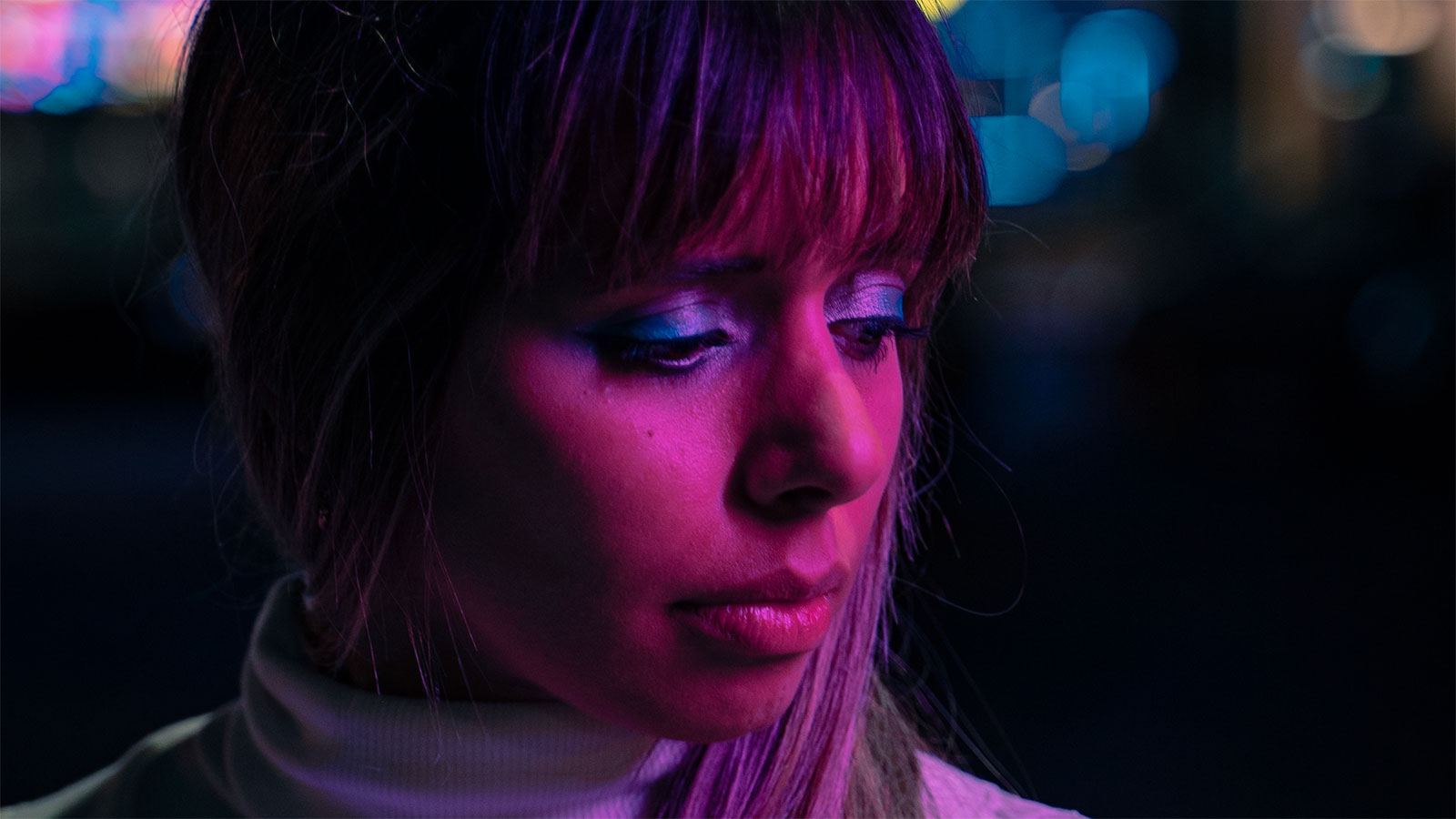
When did you first discover Ableton Live, and why did you start using it?
“I started using Ableton live because I'd been booked for a gig, off the back of a demo I'd written in another DAW. I'd never played live as an electronic musician before but speaking to others Ableton kept coming up as the thing I needed to check out.
“I was in my last year of university, and I only had three tracks but I ended up getting Ableton (for this gig) and making these three tracks work live, and since then my show has grown and grown to be what it is today - where I use Ableton for audio, but also have a very big immersive visual show alongside it.”
I often use Ableton purely to mess around with my existing stems of audio or just new audio (found sound) that i've captured
How does Ableton Live fit into your creative process?
“I often use Ableton purely to mess around with my existing stems of audio or just new audio (found sound) that i've captured. This has been my process for a while and I really enjoy it. When I'm practicing a set or just messing around with Ableton (in the Session View), I come up with so many new ideas for tracks. It allows me to hear other possibilities and act creatively in the moment.”
What makes you choose Ableton Live over other DAWs?
“It's the only way I could see myself interacting with my audio in a live setting, to make a live show where I really am working in an improvised way, but also have the safety net of the tempo staying locked, while allowing me to experiment with any number of sounds.
"This is really important to me, as the live space for me is about chance and one-off moments, and that's what using Ableton brings to my live performance.”
What’s your favourite tool or feature in Ableton Live?
“I really like the Follow Actions, it's one of my favourite little tricks that gives a set a real emphasis on the live feel. The way they often sit together when I use this trick means I'm able to hear some of my ideas in a different context. I like rethinking the parameters of the original audio I'm using too, this usually gives me even more ideas to experiment with.”
What’s your top Ableton Live production tip?
“It's simple, but using a blank scene (where you take out the stop buttons) and then editing the launch tempo of that scene. This is a really basic way of building in tempo changes to tracks and ideas without losing the flow of what you are doing, and helps seamlessly blend one idea (or track) into another when you are playing in front of an audience.”
Kayla Painter's Somewhen is out now.
Giorgia Angiuli
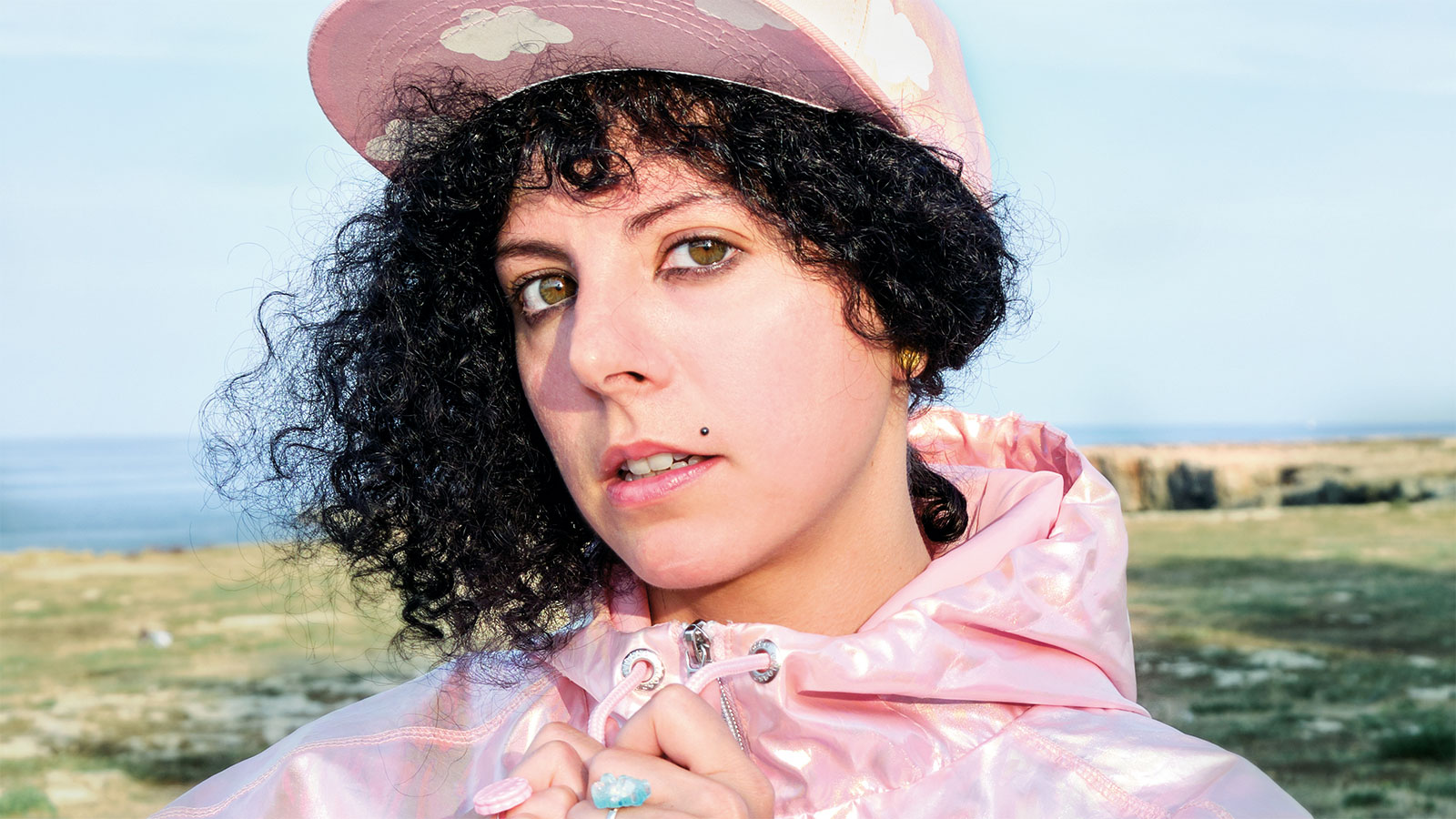
When did you first discover Ableton Live, and why did you start using it?
“I started in 2008 because all my friends were working with it and I loved it immediately for its colours - all the other musical software was mostly grey!”
How does Ableton Live fit into your creative process?
“I always say “Ableton Live” is my best friend. It is super intuitive and fast and it is the perfect software to record ideas and make arrangements. Actually I use it for everything, from scratch to the final mixed version.”
What makes you choose Ableton Live over other DAWs?
“Because it is the best! Easy to use, colourful, super stable.”
What’s your favourite tool or feature in Ableton Live?
“The advanced warping and real-time time-stretching, and the looper.”
What’s your top Ableton Live production tip?
“Don’t be focused just on production, use Ableton Live as a real instrument for playing live music, it has infinite possibilities. Explore the Session View and you will have a lot of fun. One of my favourite effects is Corpus and in Ableton 11 it rocks even more.”
Jauz
When did you first discover Ableton Live, and why did you start using it?
“I think I first started using Ableton when I was somewhere between 15-16 years old. It was actually the first DAW I tried to use as my “main” program, after trying out multiple others, and for some reason it felt too daunting to me at the time and I ended up using Reason 4 for about a year and a half.
"After being fed up with the limitations Reason had at the time, I finally decided to give Ableton another shot and I completely fell in love. The rest is history.”
How does Ableton Live fit into your creative process?
“Ableton is the be all and end all of my creative process. I’ve been using it for so long now it basically feels like my first language - I don’t think about what I want to do or how to do it, I just execute. That is the most powerful tool for a music producer - being able to get your ideas down on “paper” in the shortest amount of time possible.”
LEARN YOUR KEYBOARD SHORTCUTS!!! I can’t tell you how many sessions I’ve been in with amazingly talented producers, when they say “how did you do that without grabbing the mouse?!"
What makes you choose Ableton Live over other DAWs?
“The way Ableton works compared to any other DAW, to me, not only enables the user to be as creative as possible, but really encourages it. Like I said before, it offers so many tools to make executing ideas as quick and simply as possible, which to me is everything. Ableton is the opposite of your “old school” DAW, and that’s probably why so many younger producers are attracted to it.
“Art, in my opinion, is all about subverting the normal and being boldly different, and I think that is clearly visible when you look at the kind of music that is made on Ableton by so many creators around the world.”
What’s your favourite tool or feature in Ableton Live?
“I think the most important feature for me is Ableton’s User Library and the way you can save Effect Racks, Synth Presets, samples and more for easy access. Being able to be in the middle of a session, working on a song, randomly have a quick idea, jam it out really quick in MIDI and then immediately save it to my User Library so I can keep focusing on the project at hand is massive.
“My User Library is FULL of random loops, synths, ideas, drum patterns, etc. that I can pull out at any given time on any project, almost like my “tool box” or “utility belt”, and the level of inspiration that can give you when you’re not sure which way to go is really a game-changer.”
What’s your top Ableton Live production tip?
“LEARN YOUR KEYBOARD SHORTCUTS!!! I can’t tell you how many sessions I’ve been in with amazingly talented producers, when all of the sudden in the middle of my workflow they stop me and say “how did you do that without grabbing the mouse?!”
“Yes, trying to memorize shortcuts on a keyboard can be a pain, but the exponential amount of speed you’ll gain when working after learning just a couple is really unparalleled. My advice would be try to learn one a day, or just a few a week - after a few months, a year, two years, you’ll have just about all of them down and your workflow will be lightning quick.”
Jauz's latest single, Make It Good, is out now.
S.C.D.D. Hazmat Team
How does Ableton Live fit into your creative process?
“Ableton supports nearly every plugin, so it’s right there for you to dig deeper. It’s really easy to get started, Live is self-explanatory, I usually start with audio recording and MIDI programming, also the Session view is really helpful to bring ideas to life.”
What makes you choose Ableton Live over other DAWs?
“For me, it’s quick, stable and more comprehensible. You can find anything you want easier than other DAWs. That’s really important for a beginner.”
What’s your favourite tool or feature in Ableton Live?
“Ableton Rack is a flexible tool for me to work with effects, plug-ins and instruments, and it’s all on the bottom of the screen. I like it.”
What’s your top Ableton Live production tip?
“We can download and use a whole range of user-made Max devices. If you are not a geek who wants to dig into Max programming, this can give you more opportunity to get into it.”
S.C.D.D. Hazmat Team's RBT EP is out now on Steel City Dance Discs.
Sky Deep
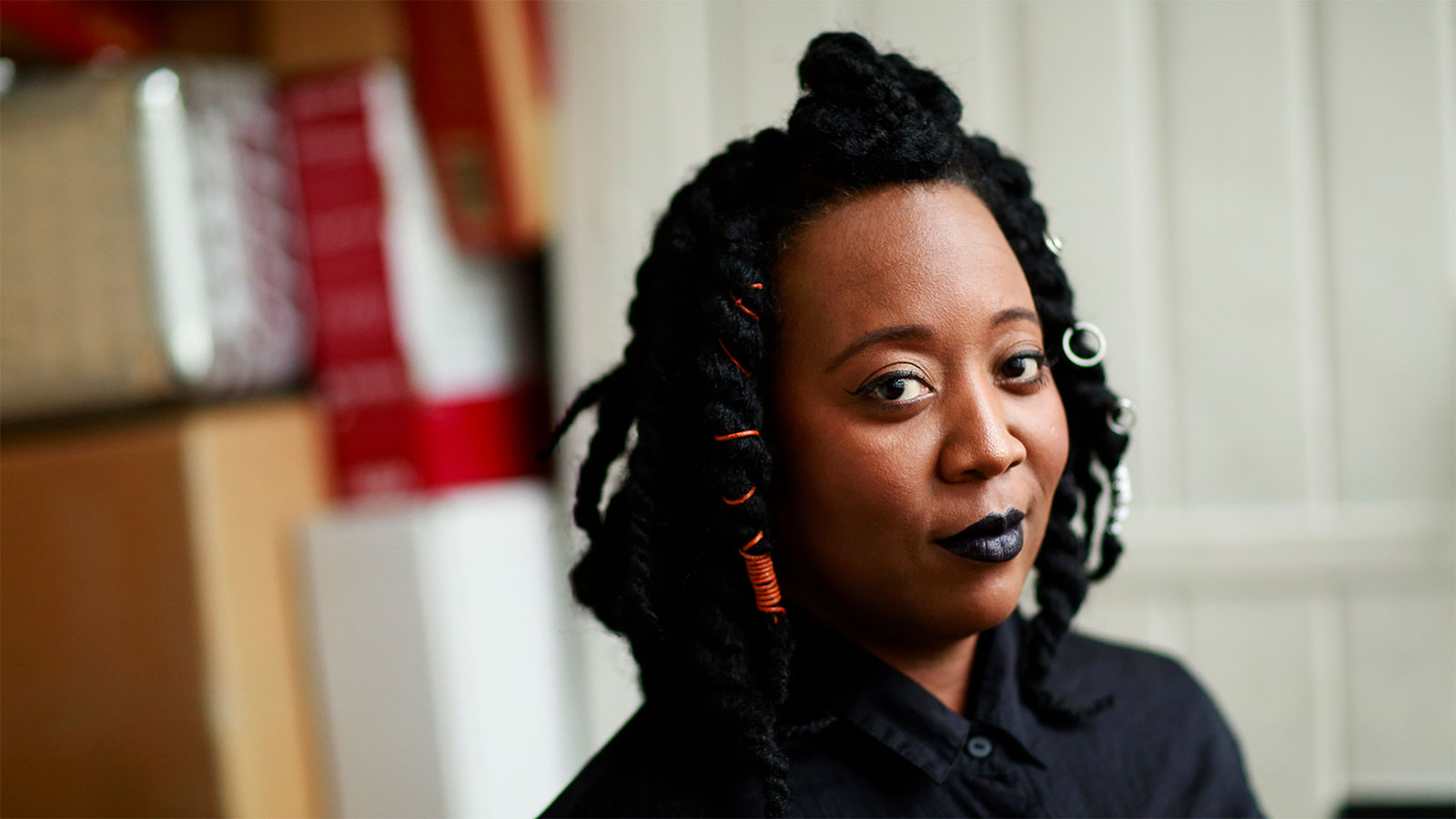
When did you first discover Ableton Live, and why did you start using it?
“I first discovered Ableton Live in the summer of 2014 when I was still living in NYC. I had heard about the program but before then, I didn't really have a specific reason to switch over from the other DAWs that I was already using.”
“Then, as I started to move toward DJing I asked a bandmate of mine, DJ Breaknek, and a friend of mine, Illexxxandra, for some DJ tips. At that time, I didn't have access to any types of turntables or dedicated media players, but I did have various MIDI controllers and a decent laptop. So, it was a huge relief when both of these more experienced DJs let me know and gave me tips on how to get started using Ableton and controllers.”
I've fallen in love with the spectrum analyzer. My good friend Steve Knots put me on to that. Now I use it all the time to fine-tune my mixes
“Of course, they showed me other software options too but because I was already into using a DAW to produce music and perform live, Ableton felt like absolute magic to me. It was a smooth transition into DJing. Nowadays, I most often use CDJs but Ableton was the gateway.”
How does Ableton Live fit into your creative process?
“I love using Ableton for sound design, quick sketching of song arrangements and for further enhancement of sounds that I record from my hardware devices. I see Live as one of my multipurpose instruments and now that I've started getting to know the Ableton Push 2, it’s become even more important for my process again because now I feel I can connect with it on a deeper level, using this very specifically integrated hardware. I can be much more musical and expressive with it now.”
What makes you choose Ableton Live over other DAWs?
“For me Ableton is most versatile, and it appeals to my desire for spontaneity and time efficiency. I can get to making music super-fast with it and easily transition from production and writer mode into Live performance mode. It's a very seamless move. I love it.”
What’s your favourite tool or feature in Ableton Live?
“This might sound very basic, but I've fallen in love with the spectrum analyzer. My good friend Steve Knots put me on to that. Now I use it all the time to fine-tune my mixes and make sure each frequency really gets its own lane.
“Otherwise, right now my most favourite creative tool would have to be the various ways I can group the tracks on a meta level. I love that I can make nested groups of groups and create different devices and effects racks for each of them. It gives me a lot of expansive creative chances in a live scenario and it's very easy to ridiculously layer a sound if you wish.”
What’s your top Ableton Live production tip?
“I would suggest making your own default session template that will open immediately every time you open the program. This way you will be able to dive right into creating.”
Sky Deep's Up In Here EP is out now.
Maya Shenfeld
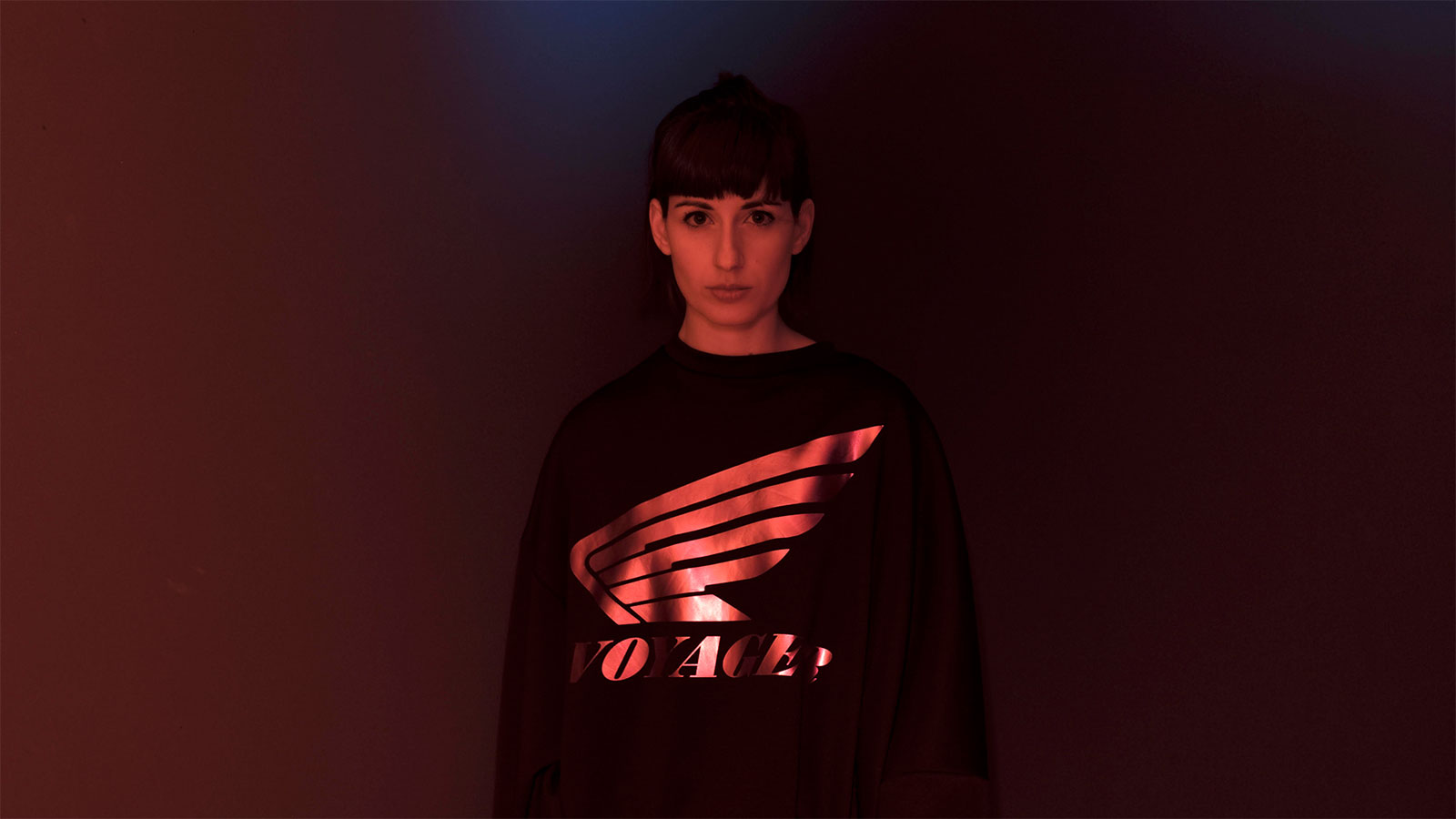
When did you first discover Ableton Live, and why did you start using it?
“Ableton was the first DAW I spent a lot of time with. I’m trained as a classical musician and composer, and as a teenager I had a couple of failed attempts getting into electronic music. I spent a bit of time with Logic and Reason - but didn’t really stick to it.
“Shortly after I moved to Berlin in 2010 I was invited to play an ambient set at a community event and had to record and produce forty minutes of music in two weeks. At the time, hanging out in various music circles, you’d often hear about Ableton. And so, that’s when I first got my license; recording, being creative, and performing felt so intuitive, it’s been my “go-to” DAW ever since.”
How does Ableton Live fit into your creative process?
There isn’t one way or a right way to do things. Some of my favourite music was produced in Ableton in a way that might be considered “wrong”
“In my workflow, I often turn to Ableton for working on sound design, being playful and creative, and of course for playing live. Since it’s the DAW I’m most proficient in, I begin by creating quick sketches in Ableton and, depending on the project, I continue developing the work shifting back and forth between Ableton and other notation, recording, and mixing software.
“Since they’ve added comping and linked-track editing in the last release, recording and editing has become a lot more approachable too. Producing and performing multichannel sound installations is a central part of my practice, and Ableton’s straightforward routing, grouping, and Session View make it ideal for producing and performing in this setup.”
What makes you choose Ableton Live over other DAWs?
“Ableton’s intuitive, creative, and flexible workflow, and that it’s very well suited for jamming and playing live. Each DAW leads music makers in certain stylistic, technical, and aesthetic directions, and so, some people turn to Max or Supercollider for a clean slate. Ableton does that in certain ways too, though I feel like each time I wanted to make something happen in a way that seemed to deviate from Ableton’s traditional workflow, I was able to find a workaround. I love Max for Live too, it’s an endless world of sonic possibilities.”
What’s your favourite tool or feature in Ableton Live?
“Recently I’ve been into FFT effects, and it was great to discover the two new spectral devices featured on the latest release. Both the spectral resonator and spectral time are inspiring devices for audio manipulation, adding texture and grain.”
What’s your top Ableton Live production tip?
“That there isn’t one way or a right way to do things. Some of my favourite music was produced in Ableton in a way that might be considered “wrong”, though this can often lead to the most exciting results.
“When I started making music with Ableton I didn’t know much about parallel compression, sidechains, gaiting... but I had a great time producing. I kept on making music, recording, sound designing, and the technical details came later. So, I’d say, make it about music-making first, and the rest will come along.”
Maya Shenfeld's In Free Fall is out now.
Zanias
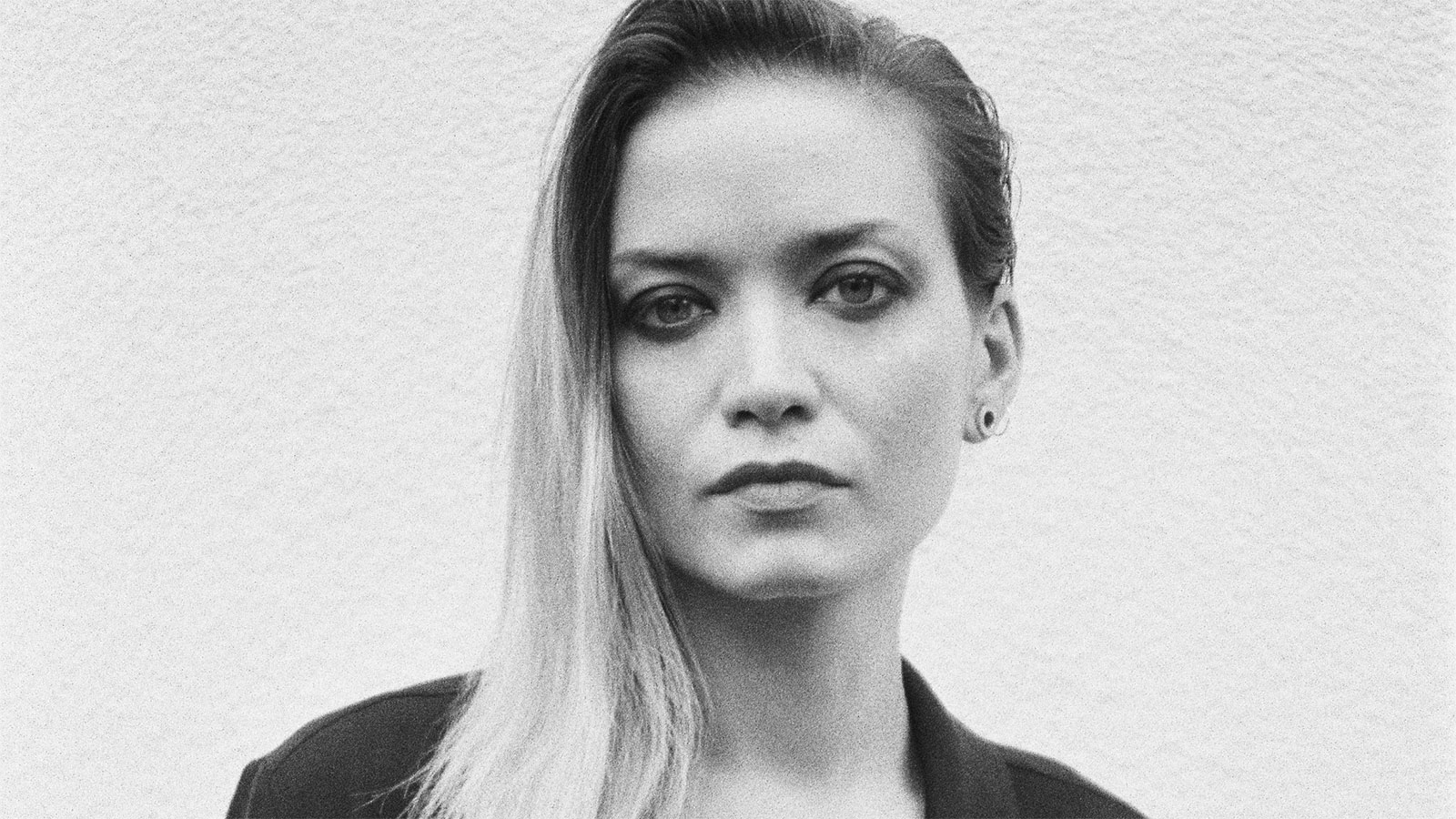
When did you first discover Ableton Live, and why did you start using it?
“In 2011, when I first started making music it just happened to be what my bandmate in Linea Aspera was using to produce our album, and I started learning how to use it alone in 2013. It didn’t really feel like a choice – it was clearly the best available software and it meant I could more easily collaborate with my peers.”
How does Ableton Live fit into your creative process?
“It’s where it all takes place, from start to finish. I don’t even use any hardware anymore since I prefer a more mobile set-up that can travel with me anywhere in the world. Starting a song means opening Ableton, and everything from there happens in the box or via my mic.”
What makes you choose Ableton Live over other DAWs?
“It has everything I need so I’ve never had a reason to try anything else, and I’m particularly attached to the Session View for triggering new ideas.”
What’s your favourite tool or feature in Ableton Live?
“Sampler.”
What’s your top Ableton Live production tip?
“Build and save complex effect chains and just see what happens when you run different sounds through them.”
Zanias' latest album, Unearthed, is out now.
KSHMR
When did you first discover Ableton Live, and why did you start using it?
“I discovered Ableton Live about six years ago. I was previously using Propellerhead’s Reason but then Dillon Francis pushed me to use Ableton and said I was crazy to use Reason. Switching to Ableton opened me up to the world of plugins and I have never looked back.”
How does Ableton Live fit into your creative process?
“Ableton is how I make songs from start to finish. It's also how I make my sample packs, and it's even how I score to picture using the video monitor.”
What makes you choose Ableton Live over other DAWs?
“Ableton so far has never felt limiting for my creative visions. My friends use other DAWs so I am aware of some of the benefits they have but I'm sticking with the devil I know. Thank god for the comping feature that they added.”
What’s your favourite tool or feature in Ableton Live?
“Everyone says the warping of audio in Ableton is great, which is true, but my favorite feature is the ability to grab anything from your sequence into the browser and store it for later use. This can be a MIDI clip that includes the instrument playing in the form of ALC or even full group which is something that I've used to fill in the buildups of songs, or quickly try a drum section that I've used from a previous project.”
What’s your top Ableton Live production tip?
“My top tip besides the cataloguing of your sounds would be to use and really understand audio effect racks. They allow you to essentially make your own plugin that incorporates effects in instruments you already use and simplifies them for the purposes you need.”
KSHMR's Over You (feat. Lovespeake) is out now on Spinnin' Records.
Kayzo
When did you first discover Ableton Live, and why did you start using it?
“I first came across Ableton back in 2011 right before I moved to LA for production school at Icon Collective. When I started school in LA, it was one of the DAWs we were taught and immediately I fell in love with the workflow.”
How does Ableton Live fit into your creative process?
“It's everything for me really. It's my main tool for creating all of what Kayzo is and what it will be. I think knowing your tools is imperative when creating. My ability to navigate through Ableton is why I am able to get my ideas out so fluidly.”
It's everything for me really. It's my main tool for creating all of what Kayzo is and what it will be
What makes you choose Ableton Live over other DAWs?
“I don't think I can really say this enough… so I will again [laughs]. WORKFLOW. My ability to work with audio and MIDI at the rate at which I currently am is why I'm getting ideas out really. The way MIDI and audio just snaps to the grid for me is really important especially when copy and pasting things across an arrangement.”
What’s your favourite tool or feature in Ableton Live?
“I'd say 11 has given me so many new things I hadn't had before with new ways to group, but outside of the trusty EQ eight I have been having a ton of fun with the erosion tool on my basses.”
What’s your top Ableton Live production tip?
“My top tip within Ableton isn't really anything revolutionary, but I would say I use more than anything to be able to EQ mono and stereo separately within an EQ. It really gives me total control on a sample or sound to carve out or highlight anything without potentially affecting each other indirectly.”
Kayzo's The Year The World Stood Still is out now.
Laughing Ears
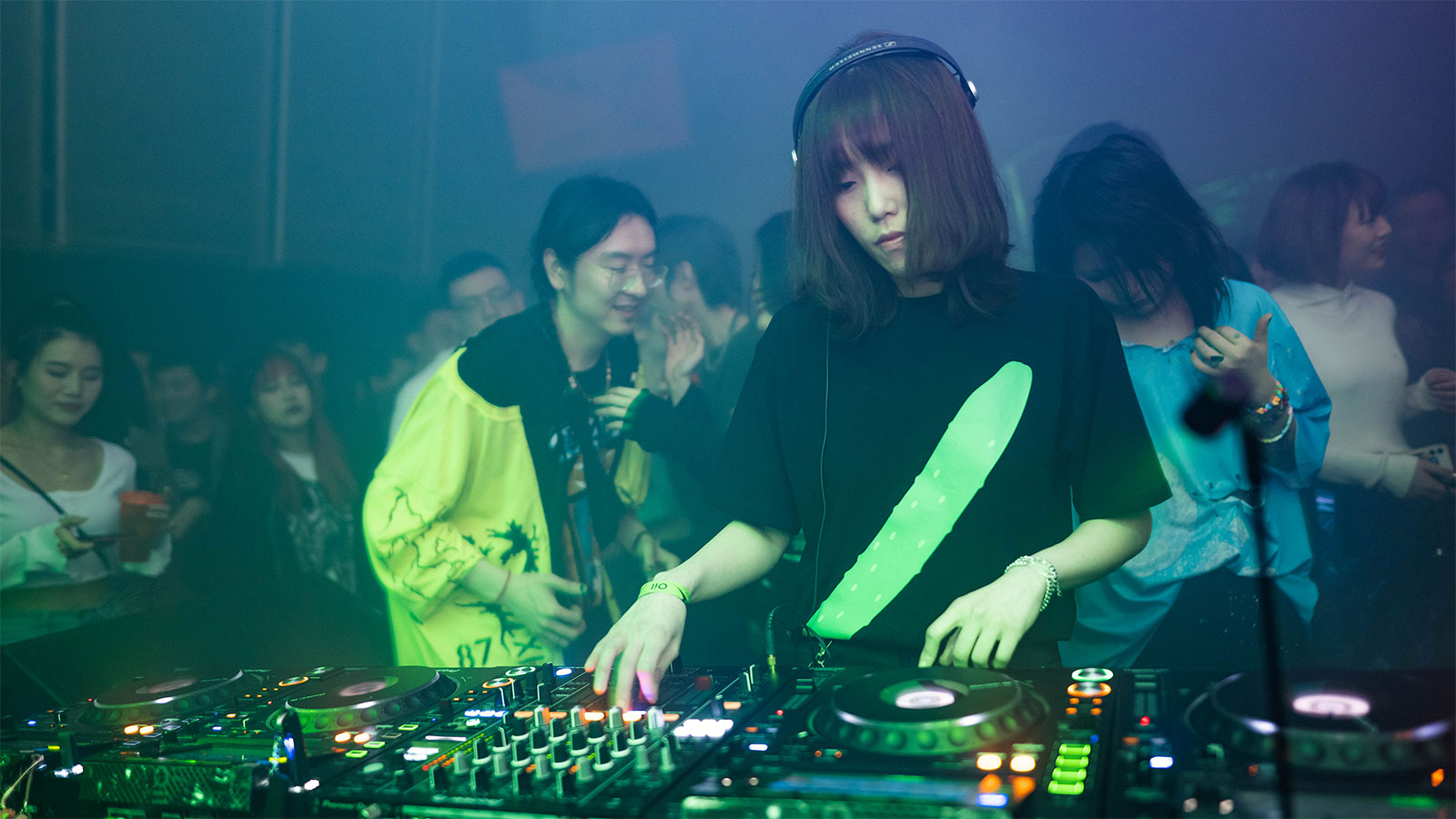
When did you first discover Ableton Live, and why did you start using it?
“I started this Ableton journey about five years ago, and I chose Live because it’s really user-friendly and creativity-oriented. I’m still using it for my own music production.”
How does Ableton Live fit into your creative process?
“Ableton supports nearly every plugin, so it’s right there for you to dig deeper. This can make it really easy to get started, Live is self-explanatory, I usually start with audio recording and MIDI programming, also the Session view is really helpful to bring ideas to life.”
What makes you choose Ableton Live over other DAWs
“For me, it’s quick, stable and more comprehensible, you can find anything you want easier than other DAWs. That’s really important for a beginner.”
What’s your favourite tool or feature in Ableton Live?
“Ableton Rack is a flexible tool for me to work with effects, plugins and instruments, and it’s all on the bottom of the screen. I like that.”
What’s your top Ableton Live production tip?
“We can download and use a whole range of user-made Max devices, if you are not a geek who wants to dig into Max programming, this can give you more opportunity to get into it.”
Laughing Ears' Losing Track EP is out now on Hemlock Recordings.
Greg Fox
How does Ableton Live fit into your creative process?
“Live is my DAW of choice, I use it to record everything, for remixes, etc. I also use Sensory Percussion to control Live when I am doing solo performances.”
What makes you choose Ableton Live over other DAWs?
“I find it easy to follow creative ideas as they emerge in Live, and I really like the interface.”
What’s your favourite tool or feature in Ableton Live?
“COMPING! Finally!”
What’s your top Ableton Live production tip?
“Remember to hit the record button.”
Greg Fox's THE SUBTLE BODY WHICH WILL MANIFEST ITSELF IS THE BASIS OF YOUR IMMORTALITY is out now.
Blond:ish
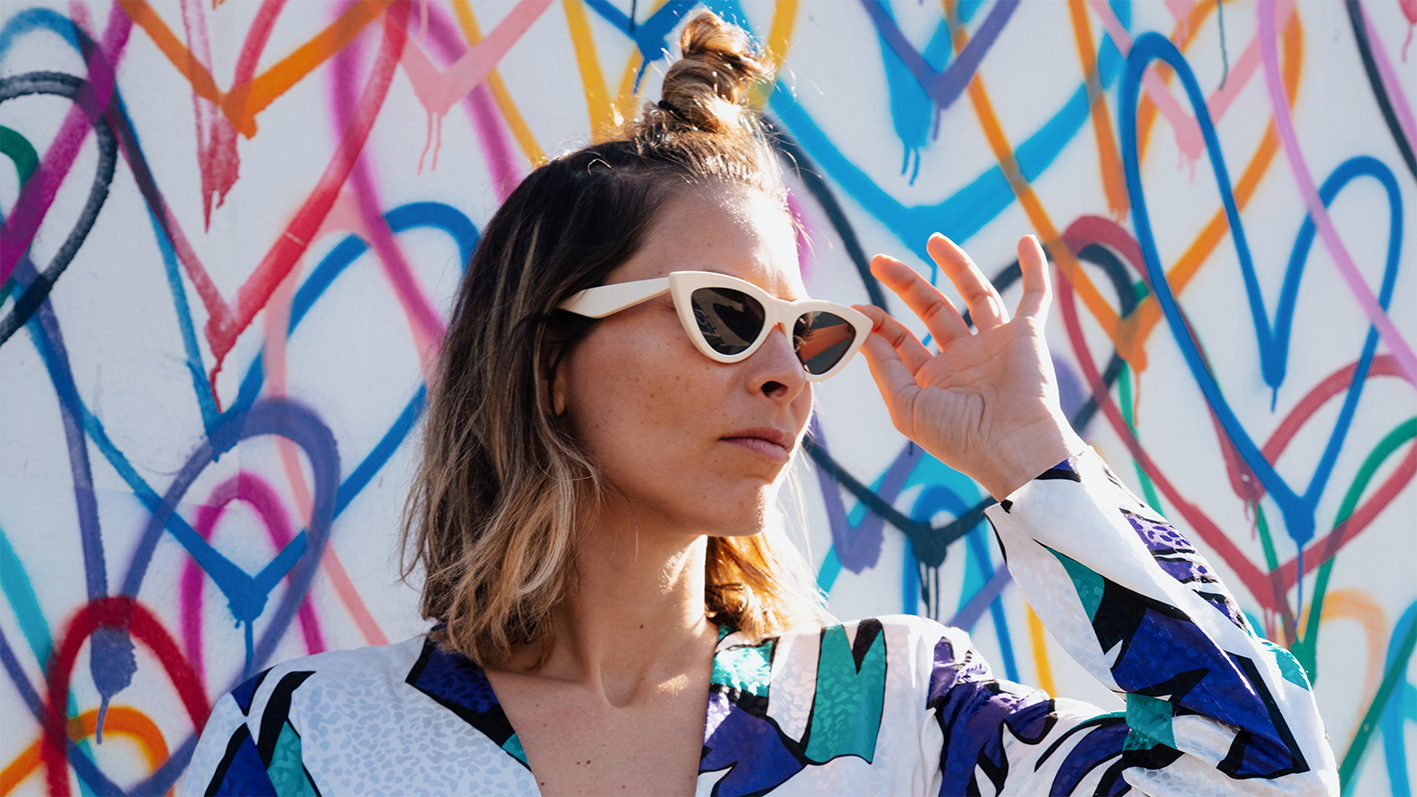
What’s your favourite tool or feature in Ableton Live?
“Easily the warp and the simplicity of audio editing, however FX-wise I'm digging Spectral Time. It’s a super creative delay/looper/stretch thingy. It’s fairly tricky to get anything exactly right but sometimes that’s what you want/need. But in general the delays, especially Delay or Echo are very good and intuitive.”
What’s your top Ableton Live production tip?
“Try and keep the overall balance tidy, i.e master has headroom, check your track's low end and mono compatibility… don’t edit the fuck out of your vibe. Write a hit, don’t roast your ears. Take breaks; ear breaks and eye breaks.”
When did you first discover Ableton Live, and why did you start using it?
“A long while back. Scenes are a different way to record and catch a vibe that you didn’t get from other DAWs in that moment and enable you to produce music from a different perspective. That’s what initially pulled me in.”
How does Ableton Live fit into your creative process?
“Ableton Live Scenes is the centre of my creative process. I love to play around modularly there.”
What makes you choose Ableton Live over other DAWs?
“Scenes, ease of use, and Link.”
What’s your favourite tool or feature in Ableton Live?
“Link is also a nice Ableton Live feature.”

I'm MusicRadar's Tech Editor, working across everything from product news and gear-focused features to artist interviews and tech tutorials. I love electronic music and I'm perpetually fascinated by the tools we use to make it.